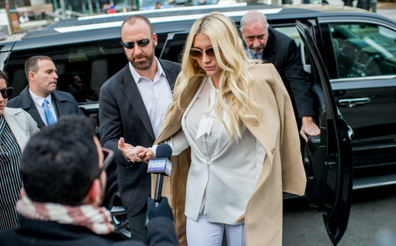Last week, pop singer Kesha Rose Sebert left a Manhattan courthouse in tears over the outcome of her lawsuit against producer Dr. Luke (Lukasz Gottwald), under whom she must complete six more albums or choose not to produce any more music. In 2014, the singer sued her producer for ongoing sexual assault and for drugging her.
I cannot help but remark on how obvious and intriguing one piece of this puzzle is: Why didn’t Kesha come forward sooner? Some would argue that the singer should have stepped forward the moment the assault and abuse began, and I would have to agree — to an extent. Logical reasoning points toward immediate action: If you want results, address the situation. What the judge, as well as all those siding with Dr. Luke, fail to realize is that realistically, many factors can prevent a victim from coming forward. Factors such as fear.
Until we live in a world or even a country that fully recognizes that sexual assault victims are not to blame for their abuse, the divide between these groups of thought cannot be diminished. The fear associated with making the details of one’s assault public stems from multiple areas: fear of the attacker and whether or not they will become violent again due to the accusations; fear of being looked down upon by family and friends; and fear of what these allegations could do to a young victim’s future. While it would be comforting and hopeful to explore the idea that these accusations would have no other effect on the victim aside from remediating the injustice of their situation, in reality, we still live in a society that looks down on survivors for being “impure,” “asking for it” and even being “weak.” Until these misconceptions are shattered, survivors will continue to toy with the idea of justice instead of taking hold of the situation as soon as they possibly can.
This lawsuit represents so much more than a singer’s grievances against her manager. It represents the hundreds of college students nationwide who are too afraid to speak out against their attackers. It represents the handfuls of people who have missed their time periods allotted by statues of limitations in bringing forth information about child abuse. It stands for those who harbor the feelings of guilt, doubt and confusion associated with their mistreatment, in whatever medium it was performed, who decided to keep their situation a secret from their friends, family and the public.
The fact that a judge ruled to go with the commercially responsible outcome reestablishes the idea that in America, no matter how much money or fame you have, there always remains the possibility that by publicly announcing the horrors of a sexual assault struggle, you can be punished for how hard you have worked and how talented you are. I feel for Kesha, and I feel for all of the victims of sexual assault fighting the battle against their aggressors, society or themselves. By continuing, however, to come forward and make these acts known, we collectively will invert the mindset that we need to teach potential victims how to be safe, and start focusing on making sure that the title of sexual assaulter does not become filled.


